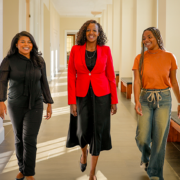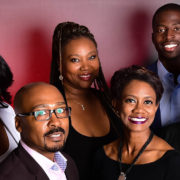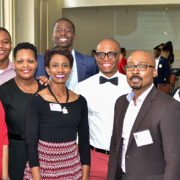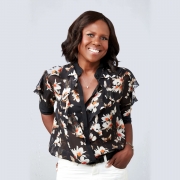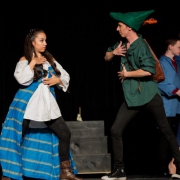Groundbreaking broadcaster Monica Kaufman Pearson delivers 2019 Holmes-Hunter Lecture
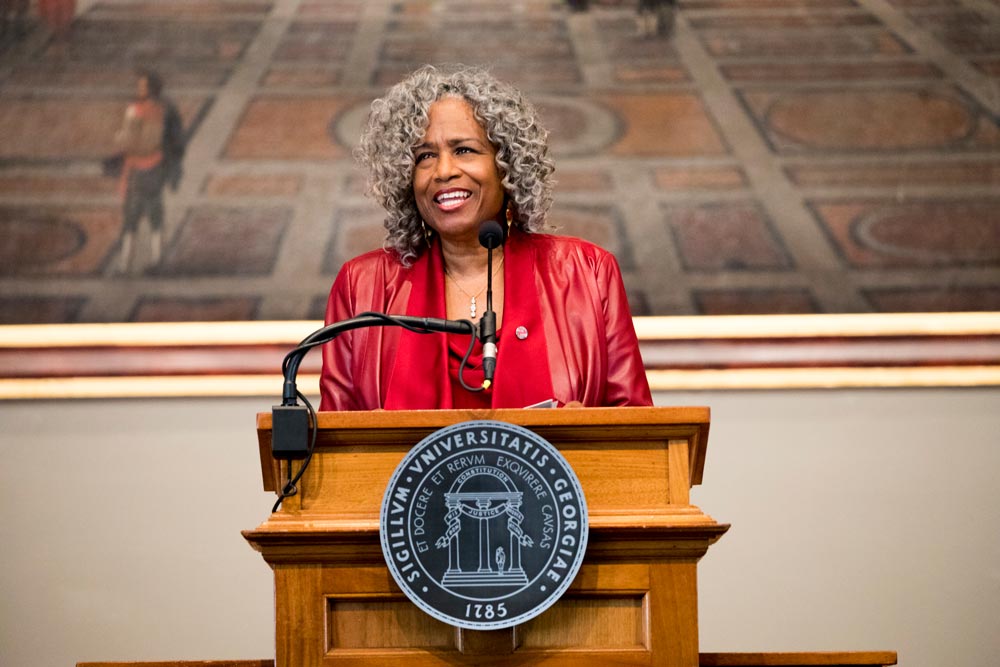
Monica Kaufman Pearson delivers the 2019 Holmes-Hunter Lecture in the Chapel. (Photo by Dorothy Kozlowski/UGA)
The UGA Chapel was filled with joy, anger, sadness, and, ultimately, hope when the University of Georgia welcomed back alumna Monica Kaufman Pearson (MA ’14) to deliver the annual Holmes-Hunter Signature Lecture on Thursday, Feb. 7.
Named for Dr. Hamilton Holmes (BS ’63) and Charlayne Hunter-Gault (ABJ ’63), UGA’s first African-American students, the lecture series began in 1985 and, each year, invites a distinguished scholar or public figure to speak on race relations, aspects of higher education with implications for race relations and black history.
“We recognize that our collective backgrounds and experiences unite us and they enrich the living and learning environment for our students and for the entire campus community,” said Arthur Tripp, Assistant to the President, introducing Pearson.
“It is our goal to continue to foster a vibrant exchange of ideas by bringing speakers to campus who champion a diversity of thought, ideas and who challenge us to think critically about the pressing issues of the day.”
Pearson’s illustrious career includes being Atlanta’s first woman and first minority to anchor daily news programs. Her reporting has garnered over 30 local and regional Emmys, her long-running “Close-Ups” series has profiled national celebrities and world leaders and she was named a UGA Distinguished Alumni last year, having graduated magna cum laude following her retirement in 2012.
Pearson opened the lecture with several bars of an old spiritual song, then laid bare the history of black oppression in no uncertain terms—a history that stretches into the present day.
“The seed planted was slavery, fertilized by the Civil War, watered during Reconstruction with Jim Crow laws, then pruned and reshaped after the Civil Rights Act of 1964,” said Pearson. “And then finally, with the election of the first black president in 2008, some claimed the roots of racism were uprooted and destroyed. That was a lie.”
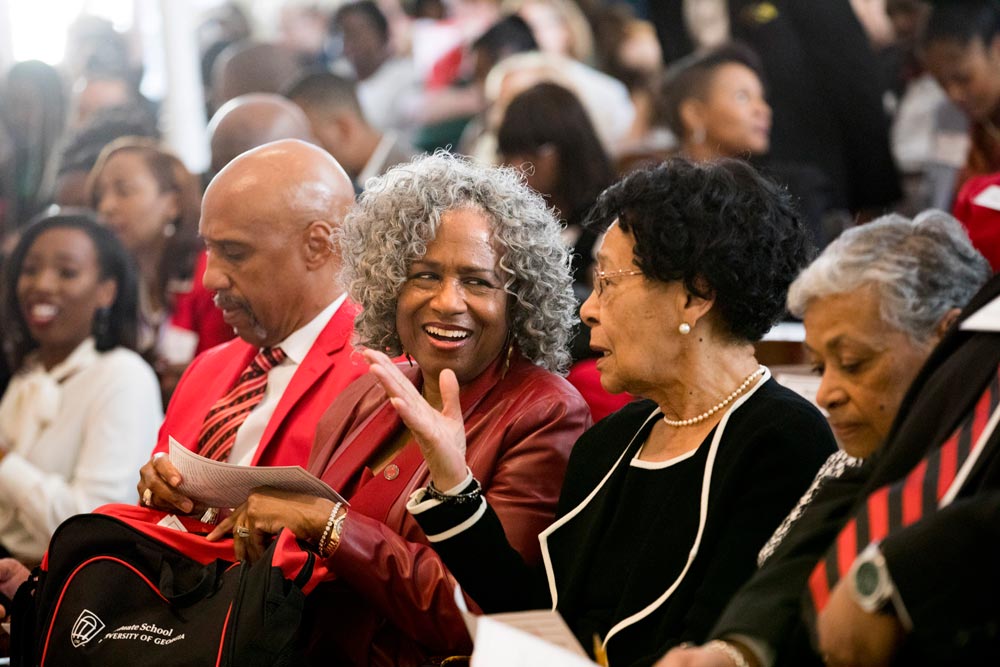
Monica Kaufman Pearson (center) speaks with Mary Frances Early prior to the lecture (Photo by Dorothy Kozlowski/UGA)
Pearson documented abuse after abuse, asking “how do the roots of racism continue to grow like kudzu and how do we change that?” At the heart of her solution was action rooted in honesty.
“We must educate people, awaken their sensibilities,” said Pearson. “Speak up, ladies and gentlemen, when you see racism and when you hear racist conversations and you hear horrible jokes from your coworkers, your family and your friends. Speak up.”
Pearson noted that although conversations around race can be uncomfortable, they are necessary. Those in positions of power must examine their prejudices, Pearson said, and those who have been victim to oppression can’t let their ambitions suffer as a result.
“Don’t be afraid to be the first person in your family to do anything,” said Pearson. “Don’t be afraid of being the best you can be. Don’t let other people define you. You define you. Build up your self-esteem. Be the first in your family to go to college, to get a master’s degree, to get a doctorate. Become the first woman president of the University of Georgia.”
Pearson closed with a message of hope, quoting from remarks made by Dr. Martin Luther King Jr. and positing that prosperity for all relies on intersection, cooperation and communication.
Honored guests at the event included family members of the late Dr. Holmes, UGA’s first African-American graduate, Mary Frances Early, and students from Athens-area and metro Atlanta middle and high schools.
———-
The hope in Pearson’s message lives at the heart of the Holmes-Hunter Lecture and was the driving force in the creation of the Black Alumni Scholarship Fund. Give today to honor the memory of trailblazers like Early, Holmes, Hunter-Gault and Pearson by opening doors for tomorrow’s scholars.

